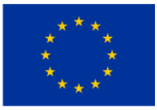Roundtable “What EU Foreign Policy in a more contested World?”
This roundtable aims to understand what kind of actor the European Union is becoming in a world characterised by multipolar contestation and regional fragmentation. The session is part of the JOINT project which assesses the challenges to a more joined-up foreign and security policy of the European Union.
Actividad realizada
CIDOB, Jordi Maragall room, Elisabets 12, 08001 Barcelona
CIDOB (Barcelona Centre for International Affairs) in the framework of the JOINT project
The European Union’s ambition to become a normative power and contribute to the expansion of liberal and democratic norms, rule of law and multilateralism appears more contested than ever. The Western hegemony of the post-Cold War period has been replaced by a multipolar system characterised by great power rivalry. Re-emerging powers such as China and Russia compete with the United States in the military, trade, health, and energy sectors, and to influence or conquer other regions, oceans and the space. European Union member states are also persistently divided over foreign and security policy issues, particularly after the rise of populist narratives. Moreover, regions to the south and east of the European Union appear fragmented, unstable, and affected by conflicts and crises, whose effects (from economic disruptions to humanitarian and mobility crises) spill over into neighbouring states. What is the role of the EU in such a fragmented and contested world? How norms should be spread in a geopolitical world? Is the need for a joined-up and strategic union the way to become a normative power?
This roundtable aims to understand what kind of actor the European Union is becoming in a world characterised by multipolar contestation and regional fragmentation. The session is part of the JOINT project which assesses the challenges to a more joined-up foreign and security policy of the European Union.

This project has received funding from the European Union’s Horizon 2020 research and innovation programme under grant agreement No 959143
This event reflects only the view of the authors and the European Commission is not responsible for any use that may be made of the information it contains.